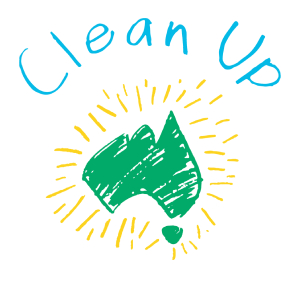Here Are The Easiest Ways You Can Help The Planet This Clean Up Australia Day


Because our environmental challenges go far beyond one day.
Clean Up Australia Day happens annually on the first Sunday in March and is the nation’s largest community-based environmental event – more than 20 million Australians have participated since its inception over three decades ago.
Can you imagine the good we could do, if all of Australia came together on one day and took practical action to improve the environment? What a difference we could make!
This March, hundreds of thousands of volunteers across the country will scour parks, local beaches, and riverways for trash and rubbish as part of Clean Up Australia Day.
However, volunteers are increasingly worried about the threat of plastic to Australia’s natural environment, with an estimated 130,000 tonnes of plastic leaking into Australia’s marine environment each year.
With plastics accounting for over 40% percent of rubbish encountered by volunteers on Clean Up Australia Day, here are some easy lifestyle changes you can make to help keep our natural environment beautiful.
Stuff Single-Use Plastics
Single use plastics like coffee cups and plastic cutlery make up over one million tonnes of Australia’s total annual plastic waste.
With over eighty percent of Australia’s plastic waste ending up in landfill instead of a recycling centre, reducing single-use plastics in your daily life goes a long way in helping Clean Up Australia Day volunteers in March.
Whether it’s the vigilante use of a keep-cup for your morning coffee, or keeping a surplus of emergency shopping bags in your car, the solutions for eliminating single use plastic are everywhere and actually really easy to implement into your daily life.
Let Your Food Waste Flourish
In Australia, over 5 million tonnes of food ends up in landfill every year, enough to fill 9,000 olympic swimming pools. Once left to rot in landfill, food waste expels methane, a greenhouse gas that is 25 times more potent than carbon dioxide.
This is a huge shame because the food waste that isn’t destined for your stomach can actually be a massive help in your own backyard. If you’re a keen gardener your local council can help you out with your very own composting system via Compost Revolution, which helps Australians receive subsidies on composting equipment to reap the benefits of nutrient-rich soil. And there are options like bokashi bins that are small enough to sit on your bench or under your sink and are totally odourless!
If setting up your own compost system is out of the question, you can even offload your kitchen scraps to your neighbours via Share Waste, a community-driven app that connects people with nearby composting aficionados to give your waste a second chance.
Forget Fast Fashion
Australia has a massive problem with fast fashion right now, with over six tonnes of textile waste getting chucked out every ten minutes.
Thanks to the rise of online shopping, it’s never been easier to make disastrous impulse purchases, with over a quarter of Australians admitting to throwing out clothes after only wearing them once.
So whether it’s vetting what you buy online more closely, renting an outfit for a special occasion, looking for a good tailor or cobbler or putting your old clothes out into the second-hand market for an extra buck, ensuring you get some value out of what you wear can go a long way in reducing textile waste.
Go Easy On Yourself!
Whether it be bushfires, plastic pollution, or melting polar ice, it’s very easy to mentally spiral when considering the threats to the global environment.
But before you start beating yourself up for getting your soft and hard plastics confused, or accidentally attracting a family of rats with a failed compost setup (true story), remember that doing something to bring your household footprint down is always a net positive!
To quote Anne Marie Bonneau: “we don’t need a handful of people doing zero waste perfectly, we need millions of people doing it imperfectly”.
If you can’t join in please make a donation to Clean Up Australia. 100% of funds raised through donations go directly to empowering Australians to take positive action for the environment.